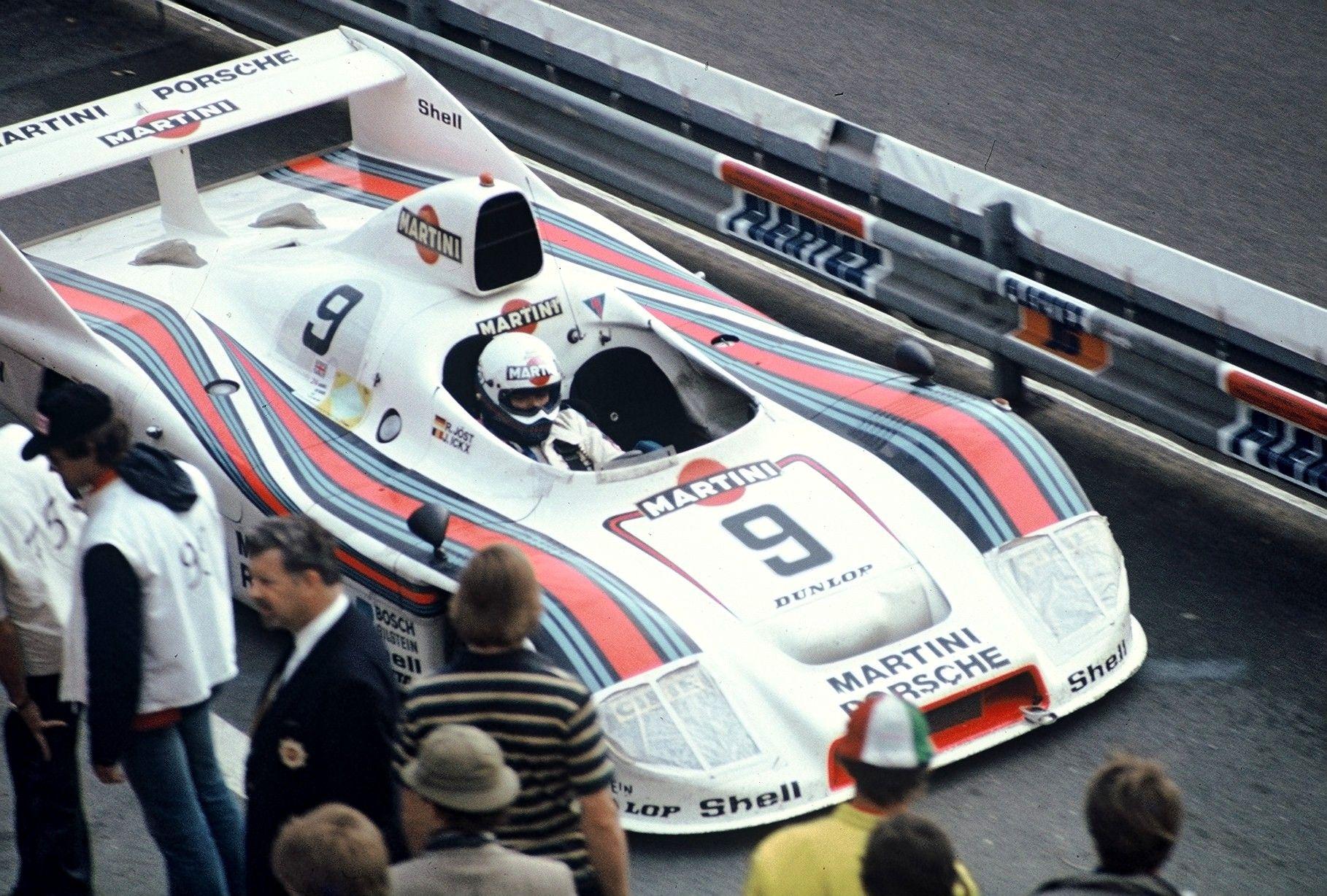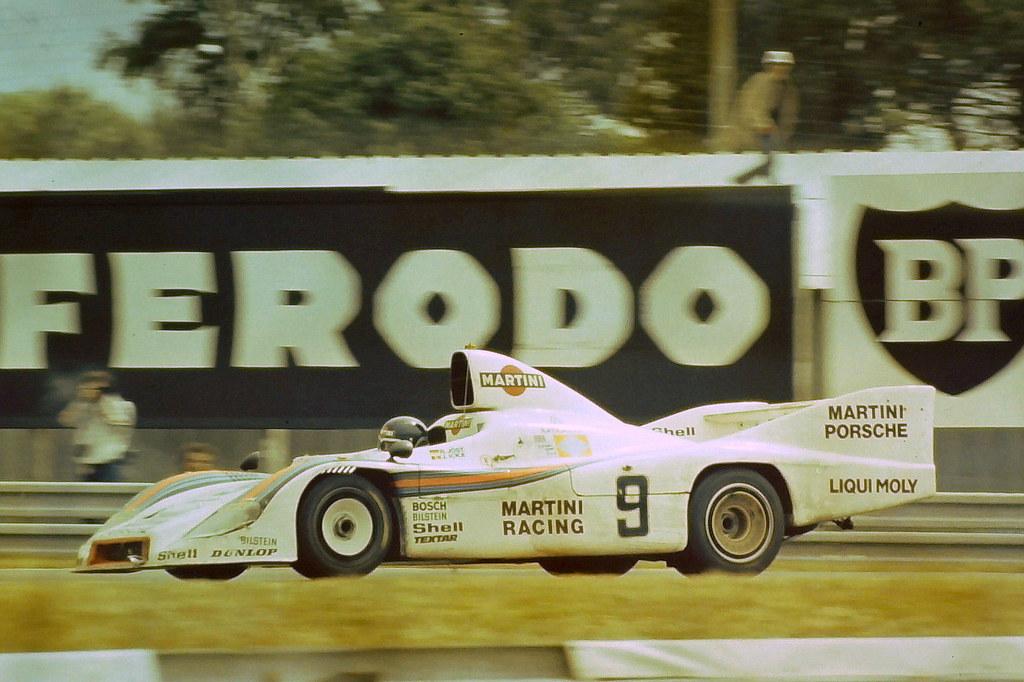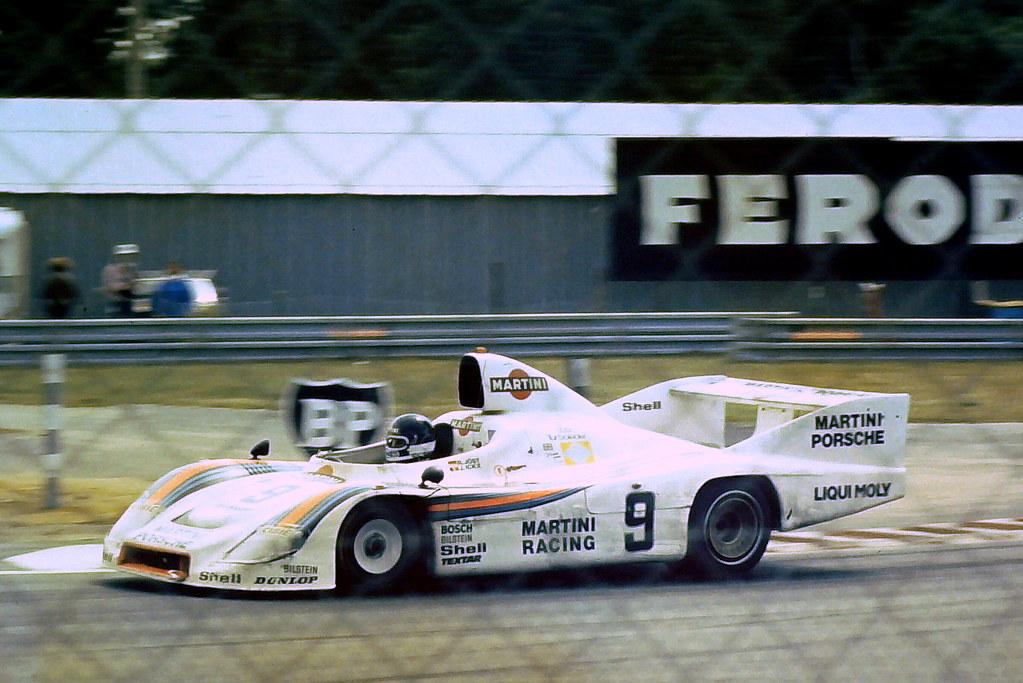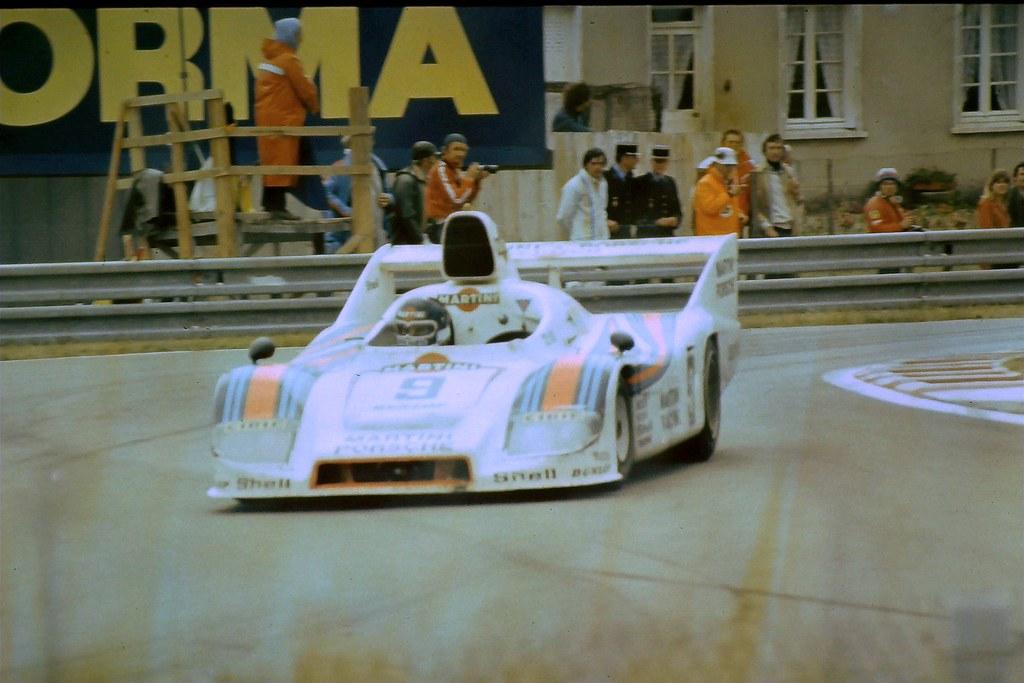1980 Porsche 936/80 Martini
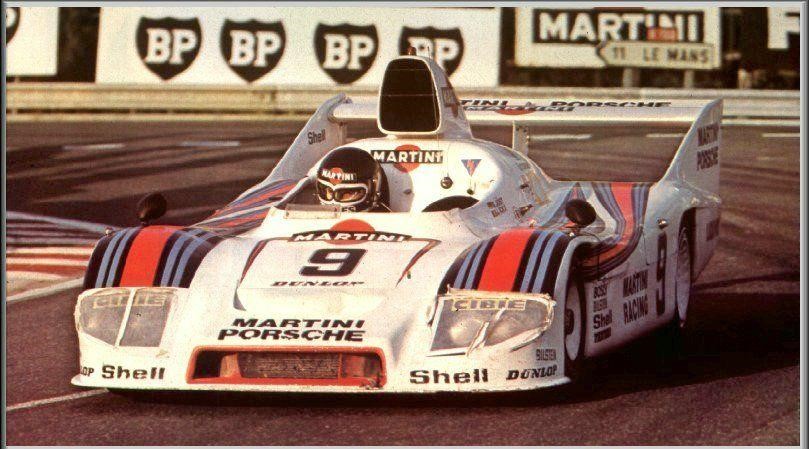
The descriptions of the Classic Cars in the Directory were partly generated or supplemented with the help of artificial intelligence (AI). The content may occasionally not always be entirely accurate or factually correct despite careful checking.
The Porsche 936/80 Martini, introduced in 1980, was a racing car designed specifically for endurance races. With its sleek aerodynamic body, it was able to travel at unprecedented speeds for long periods of time, making it a formidable competitor in events such as the 24 Hours of Le Mans.
One of the key features of the Porsche 936/80 Martini was its lightweight construction. The body shell was made from an aluminum honeycomb, wrapped around a welded steel tube frame. This design provided a strong, rigid foundation for the car, while keeping it as light as possible.
Under the hood, the Porsche 936/80 Martini was powered by a turbocharged, 2.1-liter, flat-six engine. This engine was capable of producing 620 horsepower, which was delivered to the rear wheels through a 5-speed manual transmission. With its powerful engine and the lightweight construction, the car was able to reach a top speed of around 360km/h.
The suspension system of the Porsche 936/80 Martini was also designed with endurance racing in mind. The car featured a double wishbone suspension system with coil springs and oil-filled shock absorbers. This system provided excellent handling, and allowed the car to maintain its high speeds throughout long races.
The brakes on the Porsche 936/80 Martini were also designed to handle the demands of endurance racing. The car featured ventilated disc brakes on all four wheels, with integrated cooling ducts. This allowed the car to slow down quickly and efficiently, even at high speeds.
Inside the car, the driver was seated in a specially designed racing seat, which provided a comfortable and secure driving position. The car also featured a full complement of gauges and instruments, including a tachometer, speedometer, fuel level, and oil pressure gauge.
Overall, the Porsche 936/80 Martini was a stunning example of German engineering and racing prowess. With its lightweight construction, powerful engine, and advanced suspension, it was able to dominate the field in endurance races, and it remains a legendary car among racing enthusiasts today.
Milestones
- 1976: Development of the Porsche 936 race car begins. - 1976: Porsche 936 wins the 24 Hours of Le Mans race. - 1977: Porsche 936 wins the 24 Hours of Le Mans race again. - 1978: Porsche 936 wins the 24 Hours of Le Mans race for the third time. - 1979: Porsche discontinues the 936 and focuses on developing a new car for the Group C racing category. - 1980: Porsche unveils the 936/80 Martini race car for the 1980 racing season. - April 1980: The 936/80 Martini makes its racing debut at the 1000 km of Monza race and finishes in second place. - June 1980: The 936/80 Martini wins the 24 Hours of Le Mans race, driven by Jacky Ickx and Derek Bell. - July 1980: The 936/80 Martini wins the 6 Hours of Watkins Glen race. - September 1980: The 936/80 Martini wins the 1000 km of Nürburgring race. - October 1980: The 936/80 Martini competes in its final race, the 6 Hours of Mugello, finishing in fourth place. - 1981: Porsche focuses on developing a new car for the Group C racing category, the Porsche 956, and discontinues the 936/80 Martini.Technical
- Engine: 2.65-liter, flat-6, naturally aspirated - Power output: 520 horsepower - Top speed: 230 mph (370 km/h) - Gearbox: 5-speed manual - Drive: Rear-wheel drive - Weight: 730 kg - Chassis: Aluminum monocoque - Suspension: Independent double wishbone - Brakes: Ventilated discs all-around - Fuel capacity: 120 liters - Aerodynamics: Low, sleek bodywork with large rear wing - Racing history: Winner of the 1980 24 Hours of Le Mans, driven by Jacky Ickx and Jochen Mass.